
By: Kris Wise | Posted: Mar. 26, 2018 | Source: WV VOAD
A Clendenin family whose lives were turned upside down after the June 2016 flood has moved into a new home thanks to the work of the West Virginia Conference of The United Methodist Church and a groundbreaking rebuilding project.
Miranda Nabers, a case manager working through the conference to help survivors of the June 2016 flood, has assisted a family of four through the recovery process since they lost their Cobb Avenue home in the flood.
The family was visiting relatives out of town when the flood hit. Their entire home was submerged, their two dogs perished and all their belongings were destroyed.
“It was terrible timing,” Nabers said. “They had just bought that land right before the flood.”
The family, which includes two young children, lived with relatives for more than a year and a half after their home was destroyed.
They now are the owners of a brand new mobile home, the product of a unique partnership between the United Methodist conference and a technical school in Upshur County.
Each year, students at the Fred W. Eberle Technical School in Buckhannon build and auction off a manufactured home. The conference purchased the 2017 model and had it transported and placed on an elevated foundation on the family’s Clendenin land.
The conference also paid for the 10-foot foundation to be constructed to get the home out of the floodplain. A crane then moved the home, in two pieces, onto the foundation.
“The family was there, and that was a great thing for them to see,” Nabers said. “That was a cool experience to watch the kids get to see that. They were pretty pumped. They said, ‘They’re putting our house on a crane! It’s in the air!’”
Volunteers from Cross Lanes United Methodist Church and Clendenin United Methodist Church, as well as the conference’s own disaster response team, helped finish construction on the home and build stairs and decking to make it accessible.
“It was a great partnership,” Nabers said of all the volunteers and organizations that helped get the family moved into their new home. “They wanted a clean slate. They’re very excited.”
New home dedicated on Friday. Photo courtesy: WV VOAD
By: Jeff Jenkins | Posted: Mar. 9, 2018 at 3:22 p.m. | Source: WV MetroNews
MAYSEL, W.Va. — A Clay County family that lost everything in the June 2016 flood moved into their new house Friday in the community of Maysel.
The house was made possible by the coordinating efforts of West Virginia Voluntary Organizations Active in Disaster (WV VOAD).
“This was a family that had a rent-to-own property that was completely destroyed,” WV VOAD Disaster Case Manager Barbara Moody said.
Because the property was rent-to-own the family only qualified for rental assistance from FEMA. They were not eligible for an SBA loan.
“That’s what makes this a little special,” WV VOAD Executive Director Jenny Gannaway told MetroNews Friday. “We are able to help those families get back what they lost in the flood.”
Appalachia Service Project built the new house and the WVU Foundation helped pay for the construction. The house, which was furnished in part by Catholic Charities West Virginia, was built on property the family purchased from a family member.
The June 23, 2016 flood brought eight feet of water into the family’s former home. The couple’s two children weren’t there the night of the flood. The mother went back into the house to retrieve her son’s X-Box, WV VOAD Disaster Case Supervisor Sarah Hambrick said.
“I was like, ‘What a mom!’ she knew that was important to him,” Hambrick said.
WV VOAD and its member agencies will dedicate a new house in Richwood next week. Construction is also scheduled to start next week on the 50th private bridge that’s been constructed under a WV VOAD program.
 Jeff Jenkins, the award-winning native of Pratt, W.Va., took over as head of the news division of MetroNews in August 2000. Reach him at jjenkins@wvradio.com and follow him on Twitter @JeffJenkinsMN
Jeff Jenkins, the award-winning native of Pratt, W.Va., took over as head of the news division of MetroNews in August 2000. Reach him at jjenkins@wvradio.com and follow him on Twitter @JeffJenkinsMN
By: Stacy Nelson | Posted Mar. 11, 2018

Town of Clendenin
In June 2016, southern portions of West Virginia were devastated by what experts called, “The Thousand Year Flood”. As the flood waters began to recede, assistance came from far and near to begin the cleanup process, and to deliver food, water, and necessary living supplies. Faith based organizations and volunteers continue to assist with rebuilding efforts in these communities nearly two years after floods ravaged the region. One of those communities still receiving assistance, is the small incorporated Town of Clendenin in northern Kanawha County, home to West Virginia’s Capitol, located in nearby Charleston.
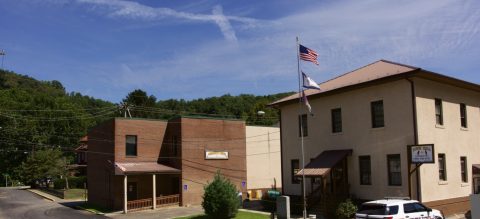
Clendenin Town Hall
The Town of Clendenin has a Mayor, Town Council, decorated Fire Department, Police Department, and even a newly created Planning Commission, all of which have been diligently working together, along with state and federal government organizations, to rebuild the town. Clendenin is only 20 miles north of Charleston, just off of Interstate 79. It sits along the Elk River, which is enjoyed by kayakers as well as musky and bass fisherman. Current plans and discussions, among the Clendenin Planning Commission revolve around the development of a quaint bedroom community to Charleston, focused on recreational tourism and the creation of community gardens on now-vacant properties. Volunteers in the community are working non-stop on these efforts. The Clendenin Homecoming Festival is slated to occur June 22-24, 2018, and plans are in place to make it an annual event where the town hopes to attract thousands of visitors and generate additional revenue for local small businesses that are gradually re-opening.
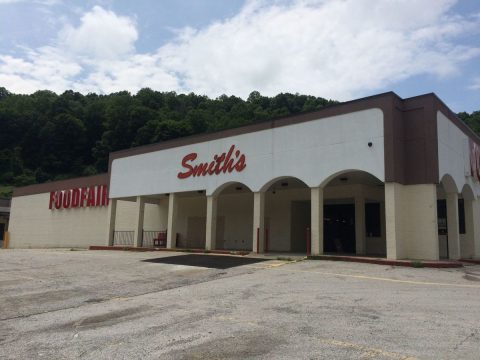
Smith’s Foodfair, sole grocery store within town limits, has not reopened after the 2016 Flood.
Even with the many positive initiatives and accomplishments, which are discussed daily among this close-knit community, most outside of the area are completely unaware of an underlying issue that plagues Clendenin and other communities affected by the 2016 Floods. Many of the residents in and around Clendenin, West Virginia are hungry!
They simply do not have enough food each month to feed their families. Many children in the community only receive a hot meal while they are at school, and wouldn’t have food over the weekend if it were not for non-profit organizations like Elk River Backpack Blessings. In addition, there are numerous families in the community who do not have electricity, running water, or basic living supplies. Others are homeless. Clendenin needs help!
I have only been visiting Clendenin for about six months, however it is abundantly clear to me from my numerous conversations with residents who have called Clendenin and/or the Elk River Valley “home” for all or most of their lives, that this region was economically depressed and struggling prior to the 2016 Flood. Local employment opportunities were limited and the general consensus among those in the community is that the flood simply escalated the deprivation that had been facing them for several years. It destroyed nearly every small business in the Town of Clendenin, including the largest employer; a local grocery store, which provided approximately 50 jobs. The store has still not been re-established, and as of this writing, there are no immediate plans to do so.
I recently wrote an article about the emergency food pantry, which is located at the Clendenin United Methodist Church, and was curious to learn about other organizations or individuals that were helping those with ongoing needs. My curiosity, along with the assistance of some locals, led me to Crystal Hawkins. Crystal works as the Care Coordinator for the Clendenin Health Center, and is in charge of the Center’s Community Outreach Program. The Clendenin Health Center, also referred to locally as “The Clinic” or “The Health Center”, is located in the original section of the old Clendenin Middle School building at 107 Koontz Avenue in Clendenin. It is owned by Cabin Creek Health Systems. In addition to providing medical services to patients in the Elk River Valley communities, this facility has an outreach program that helps those in need throughout their service area, which includes Kanawha, Clay, Roane, and Jackson Counties.
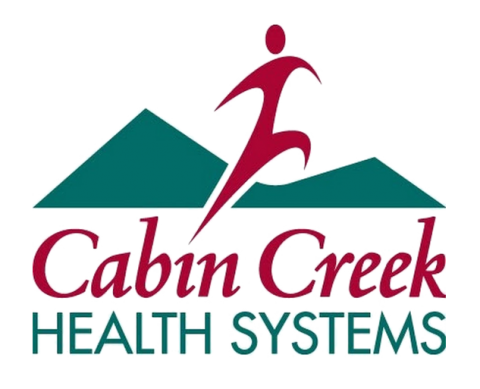 I sat down with Crystal in her office and was quite impressed to learn that Cabin Creek requires their administrative staff to participate in two community outreach projects, and two community care projects, per year. Each staff member is able to select the type of projects they want to be involved in. As part of Crystal’s community outreach requirements with Cabin Creek Health Systems, she chose to work with those in the community that were in dire need of basic living essentials.
I sat down with Crystal in her office and was quite impressed to learn that Cabin Creek requires their administrative staff to participate in two community outreach projects, and two community care projects, per year. Each staff member is able to select the type of projects they want to be involved in. As part of Crystal’s community outreach requirements with Cabin Creek Health Systems, she chose to work with those in the community that were in dire need of basic living essentials.
Crystal’s position places her in front of each patient, where she is a firsthand witness, to the continuous and growing needs within the community. She provides items and services of all kinds; from common everyday needs including food, to figuring out how to help individuals pay their utility bills. She also calls patients on a daily basis to make sure they are taking their medicine, and that they have food, water, and other necessary items. It was abundantly clear to me, that she and the others at The Health Center, are on a mission to help in any way they can and seem excited about the opportunity to make a difference in the lives of those within the community. Crystal is a resident of neighboring Roane County, West Virginia and also volunteers with the Roane County Schools, who accept donations of new or lightly worn clothes, shoes, personal hygiene items, as well as food. These items are then distributed to the students there in need, during school hours, through their individual school pantries.
Crystal, her colleagues and staff at The Health Center, have established a secured space at the facility to store donated items. They first assess individual and/or family needs, then distribute supplies out of this space accordingly. She gave me a tour of the space and what I saw spoke volumes to me regarding their selfless efforts. It was quite obvious that the space they had converted to assist these individuals and/or families within the community, had formerly been their employee lounge.
Crystal explained that volunteers are in place to prepare and serve hot meals, but they are in need of a facility with a commercial kitchen, a food truck, or a way to deliver meals to those who cannot travel. I could see the concern on her face as she explained the severity of hunger in the community. “There are numerous people in the community that do not have hot food or a way to even prepare hot food”. She went on to explain that meals used to be provided at the Recreation Center in Clendenin, but that facility can no longer be used due to flood damage to the kitchen there. At the time of this interview, The Health Center was ready to prepare and feed the hungry, but have no location with a commercial kitchen and the necessary space to do so.
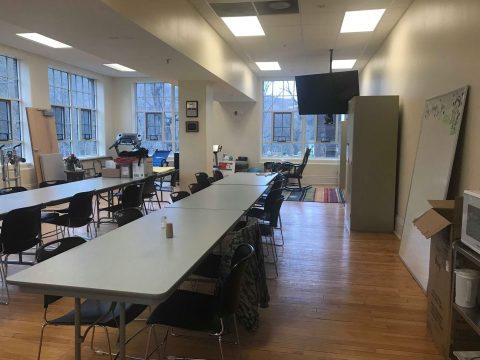 The sheer compassion that Crystal displayed when speaking about the local hunger issue gave me chills, and in order to better understand the total scope of need within the community, I wanted to understand the severity of all non-hunger related needs as well. She explained that while everyone’s priorities are different, they could all be categorized as “necessary living essentials”. She reiterated that they do not provide items that are unnecessary or support personal habits. When the immediate needs of a patient are met, they try to identify long term solutions for patients. Resources have been limited however. According to Crystal, many in the community are left without things like food and clean running water. She echoed the opinion of others I have been speaking with, saying there has “always been a need in the community but it has gotten worse since the flood.” She went on to explain that numerous people do not have access to transportation and are not well enough physically to ride the public bus line that services Clendenin.
The sheer compassion that Crystal displayed when speaking about the local hunger issue gave me chills, and in order to better understand the total scope of need within the community, I wanted to understand the severity of all non-hunger related needs as well. She explained that while everyone’s priorities are different, they could all be categorized as “necessary living essentials”. She reiterated that they do not provide items that are unnecessary or support personal habits. When the immediate needs of a patient are met, they try to identify long term solutions for patients. Resources have been limited however. According to Crystal, many in the community are left without things like food and clean running water. She echoed the opinion of others I have been speaking with, saying there has “always been a need in the community but it has gotten worse since the flood.” She went on to explain that numerous people do not have access to transportation and are not well enough physically to ride the public bus line that services Clendenin.
The Clendenin Health Center works closely with the Clendenin Ministerial Association to provide hot showers for those without running water and volunteers help with laundry needs. In regards to these specific issues, Crystal stated with much empathy, “Sadly enough, Clendenin didn’t bounce back as quickly as people thought it would after the flood”. She went on to say that they did not have a firm, total number of people with extreme needs in the community, on an ongoing basis, because there are still many individuals and families who are not patients at the clinic, but in dire need of assistance.
It took many businesses in the Town of Clendenin a year before they were able to re-open their doors, and several are still closed. As mentioned previously, Clendenin still does not have a grocery store, and both of their schools were relocated after the flood, to portable trailers at neighboring schools in Elkview, West Virginia. According to FEMA and other government agencies at a recent public meeting, it could be years years before construction is complete on Clendenin Elementary, and the same for Herbert Hoover High School, which is at risk of not even returning to the Clendenin area.
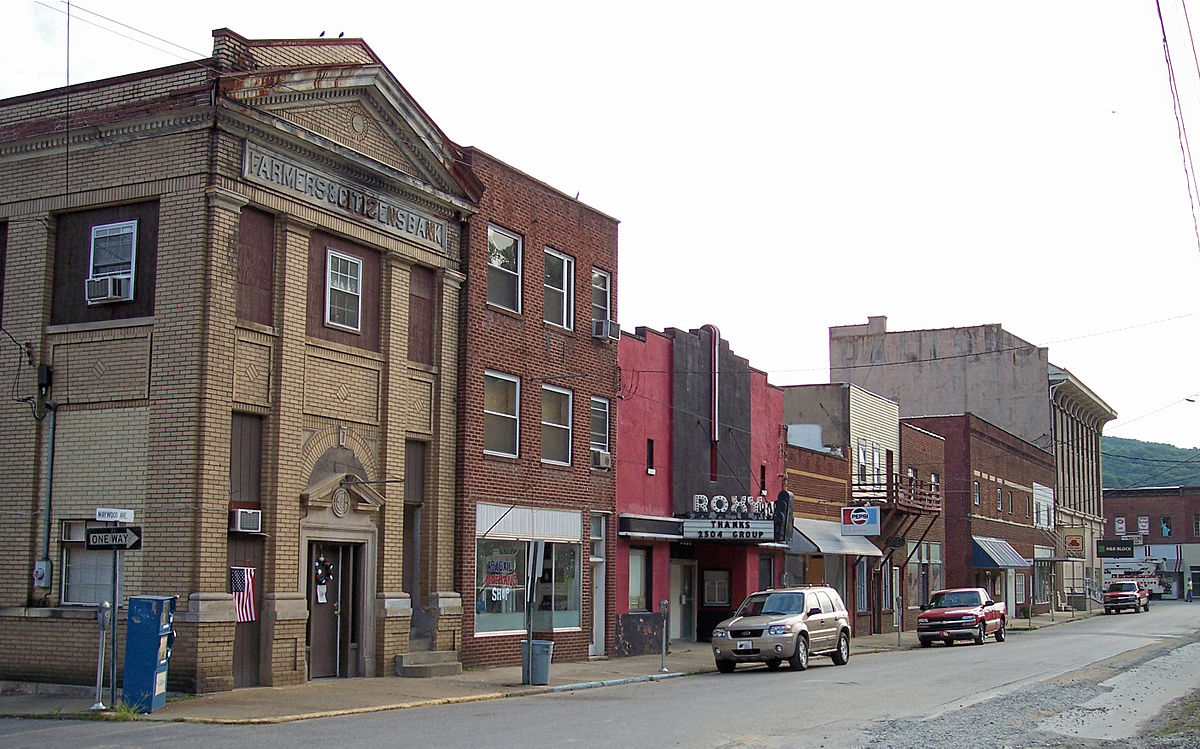
Maywood Avenue, Clendenin, West Virginia
I’ve known since the moment I stepped foot in Clendenin, West Virginia, that the people here genuinely care about one another, and that was reaffirmed when I learned that until recently, Crystal and other staff members at The Health Center were using their own personal money to purchase food and items that patients were in desperate need of. I believe the fact that the most requested item that Crystal receives, after food, is adult briefs for incontinence. This reinforces the fact that the need is real, and that the need is dire.
From my conversations with those in the community, the perception is that several of those with ongoing needs are employed, but not earning enough to meet their basic needs due to low wages and/or lack of workable hours from their employer(s). Others are simply unable to locate employment at all. Many seniors and disabled residents, who are physically unable to work but may be receiving benefits, are still struggling each month just to make ends meet, often going without food.
Susan Jack, with The Clendenin Leader, visited students from Clendenin/Bridge Elementary and Elkview Middle Schools, to get their response to the teacher strike that closed schools in all 55 counties in West Virginia for nine days recently. To Susan’s surprise, the students’ number one fear about the teacher strike was a genuine concern for other students whose only meal often comes from school. On that day, the Clendenin Health Center volunteered to feed hungry students at the Clendenin Fire Department and, after the announcement on social media, several Herbert Hoover High School students took to Facebook and Twitter to offer free rides to anyone who was hungry.
The people of Clendenin, West Virginia are resilient. They are compassionate, kind, and care deeply about one another. They have a mindset that is admirable and respectable. They are good people, but I can honestly say the same thing about West Virginians as a whole. Unfortunately, West Virginia ranks as the worst state in the United States for business, ranking 50th for Economy and 49th for Workforce, according to a 2017 CNBC Report . A recent Spotlight on Poverty & Opportunity Study found that 45% of West Virginian’s living in poverty are single-parent families with children. With businesses and educated young people leaving the state for better opportunities, how will we recover, and when will hunger not be the primary concern facing the state of West Virginia?
There are several ways you can get involved. Even a small donation can make a monumental difference.
Donated food (non-perishables) and supplies to help the Town of Clendenin, West Virginia and surrounding communities, can be dropped off or shipped to:
Clendenin Health Center
c/o Food Pantry
107 Koontz Avenue
Clendenin, WV 25045
Phone calls can be directed to Crystal Hawkins at (304) 548-7272 and emails can be sent to chawkins@cchcwv.com.
Requested items for the Clendenin Health Center include the following:
The emergency food pantry, located at the Clendenin United Methodist Church, is operated by the Clendenin Ministerial Association. Donations can be dropped off there on Tuesdays 5:00 p.m. to 6:00 p.m. at the Clendenin United Methodist Church, 121 Koontz Avenue, Clendenin, West Virginia 25045.
Roane County School Pantry: Contact: Shawnee Jarrell – sgjarrel@k12.wv.us. Items requested include socks, underwear, toothbrushes, toothpaste, shampoo, soap, deodorant, pencils, paper backpacks, sweatpants, sweatshirts, feminine hygiene products, non-perishable food.

Elk River Blessings: Contact Debi O’Dell (304) 767-0699. View complete list of needs HERE
Submitted photo The Barboursville Lions Club celebrated 75 years of service to the community Jan. 23 at the Barboursville Senior Center.
Posted: Mar. 9, 2018 | Source: The Herald Dispatch
BARBOURSVILLE – The Barboursville Lions Club celebrated 75 years of service to the community Jan. 23 at the Barboursville Senior Center.
District Governor Lion Lee Ann Welch and Past District Governors Bob Roach, John Pinkerman, Donna Pinkerman and Eddie Queen were honored guests.
Barboursville Mayor Chris Tatum presented a proclamation honoring the club for its many years of service to the community.
Club past President Lib Ciccolella presented a history of the club, noting it was sponsored in 1942 by the Huntington Downtown Lions Club.
In 1972, the Barboursville Lions sponsored the Lesage Lions Club and for the past 15 years, been the sponsor of the youth organization of Lions, the Leo Club at Cabell Midland High School and Barboursville Middle School.
Four years ago, a community-based Leo Club was formed, now boasting 55 members. Projects of the Leo Club include serving meals at the city mission, collecting food for the Cabell Midland food pantry, and doing flood relief at Clendenin. Currently they are working on a Braille Trail project at the Barboursville Community Park.
The Barboursville Lions Club meets at 6:30 p.m. every second and fourth Tuesday at the Barboursville Community Center, 721 Central Ave., Barboursville.
For more information, visit www.e-clubhouse.org/sites/barboursville/index.php.
Send us your club news
The Herald-Dispatch welcomes news from area clubs, including installation of new offices, special speakers, upcoming programs or anniversary celebrations.
Email club news to rmfarmer@herald-dispatch or news@herald-dispatch.com.
Submitted photos should be in .jpg format and large format or large quality. Please identify each person in the photos by first and last name and include titles when appropriate.
For more information, call 304-526-2798.
The Office of the Secretary of Education and the Arts, on behalf of the Governor’s STEM Initiative, recently approved mini-grant funding to five Kanawha County schools. Herbert Hoover High School was one of the five recipients for their Flash Flood Water Level Sensor Project. According to an announcement by Briana Warner, Communications Director with Kanawha County Schools, the mini-grant program supports learning in the fields of science, technology, engineering, and math across the state of West Virginia. Selected schools were awarded up to $3,000 to implement their STEM project. (more…)
Posted: Feb. 20, 2018 | Source: Clay County Free Press
Through the coordination of West Virginia Voluntary Organizations Active in Disaster (WV VOAD), a group of about a dozen volunteers will spend a week helping repair homes for flood survivors in Kanawha and Clay counties.
Ten to 12 volunteers with Brethren Disaster Ministries, a WV VOAD member agency, will arrive Sunday from Pennsylvania. (more…)
Photo Courtesy: Stacy Nelson | The Clendenin Leader
By: Mark Burdette | Posted: Feb. 16, 2018
CLENDENIN, WEST VIRGINIA (The Clendenin Leader) – The Clendenin Planning Commission held their third meeting on Thursday, February 15, 2018, at 6:30 PM at the Recreation Building located beside Town Hall, in Clendenin, West Virginia. The meeting was facilitated by Jesse Richardson from WVU Law along with James Young (FEMA), Philip Maramba (FEMA), Julie Alston (WV HUD), Lorna Rosenberg (EPA), and Dr. Terry Polen (WV DEP) were in attendance.
After the minutes from the January 23, 2018 Planning Commission meeting were approved, Lorna Rosenberg, sustainable advisor from EPA, joined via phone conference from Philadelphia to discuss sustainable community programs that focus on local food, health, broadband, and Main Street. She discussed a focused approach to target sustainable actions to help Clendenin move forward to become more health resilient and to improve the economic resiliency. She went on to discuss that because Clendenin is a community that was affected by the flood, there will be an opportunity to focus and target a discussion and action plan around initiatives that have been created to improve the community. EPA and FEMA will facilitate a two-day workshop sometime in April or May, which will include experts from various agencies, to address specific topics and flood resiliency. Prior to this meeting, an action plan will need to be created, which should include targeted action items, along with funding information.
Mayor Shana Clendenin indicated that housing is still an issue in town and throughout the surrounding area. The mayor also added that the Kanawha County Long Term Recovery Committee and WV VOAD have done an exceptional job in residential recovery but there are still needs that need to be met. The Town of Clendenin is still struggling with business recruitment and business retention. Infrastructure is still a concern, especially wastewater treatment. According to Mayor Clendenin tourism is her primary focus right now centered around Elk River and Rails to Trails. The Town of Clendenin just applied for a TAP grant through WV Dept. of Highways for a complete streetscape of Main Street to beautify the area. Announcement of whether Clendenin will receive grant will be sometime in the fall later this year.
Kevin Clendenin, President of the Clendenin Planning Commission and Fire Chief for the Clendenin Volunteer Fire Dept., echoed many of the infrastructure challenges that the Town of Clendenin faces. Clendenin said, “We need businesses with stable jobs and need to broaden our footprint with utilities. Historically, utilities were run along the river and weren’t developed towards the interstate or residential areas like Reamer, who doesn’t have fire hydrants or city water. Less than a mile from where you’re sitting there are people drawing well water still today. We need to identify grants that can help develop our utilities.”
According to Mayor Clendenin upgrades to sewer, water and all drains in town are very much needed. The last project done on drains was the late 1990s. Dr. Terry Polen with WV DEP suggested putting a plan and process together to apply for a grant with the WV Water Development Authority could be an option to improve infrastructure needs in the town. James Young with FEMA said a mitigation grant can provide monies to upgrade infrastructure for stormwater, however, not much can be done at this point for much-needed maintenance on existing issues due to missing deadlines.
Listen to the full audio of the Clendenin Planning Commission meeting above to hear more about what is being done to revitalize the Town of Clendenin.
By: Lori Kersey, Staff Writer | Posted: Feb. 12, 2018 | Source: WV Gazette-Mail
It will be at least three months before the Kanawha County Public Library can set up a temporary space in the old Clendenin Middle School, a library official said Monday.
The library is working on drafting a lease with 25045 — A New Clendenin, the nonprofit that owns the building, director Alan Engelbert told the library board Monday at the its regular meeting.
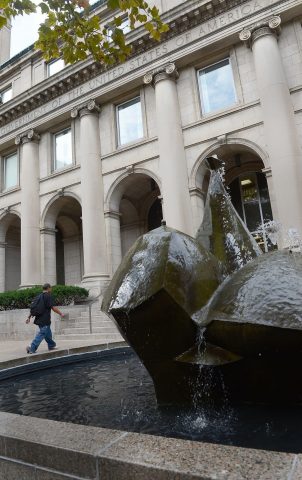
The fountain outside the main branch of the Kanawha County Public Library on Capitol Street in Charleston. Gazette-Mail file photo
The Kanawha County Commission has committed $50,000 toward renovation work at the space. The work will include taking down some walls within the facility as well as lighting and electrical work. It’s expected to take about 90 days, Engelbert said.
“I think anyone who’s doing a construction project who gives you a fixed date is probably kidding themselves,” Englebert said. “The county commission is going to be coordinating most of that work. So a lot of it will be up to their control.”
Englebert said the library appreciates the commission giving $50,000 to the project.
“We’re not sure that will cover all the expenses, and maybe the library will have to step up a little bit,” he said.
In the meantime, the library is preparing shelves, tables and chairs that it will need to put in the space. It’s also putting together a collection of books and materials, Engelbert said.
Though the library’s Clendenin facility was destroyed in the June 2016 flood, the library has retained the budget for the library branch, Engelbert said.
Last year the commission threatened to pull its $3.2 million in funding if the board decided not to rebuild the Clendenin branch.
Engelbert said the library’s space at the old middle school will be temporary.
Also Monday, Engelbert said the library has hired West Virginia Commercial to identify possible temporary locations for the main branch of the library during its upcoming $27 million expansion and renovation project.
Engelbert said library officials have yet to meet with the company to hear what those locations might be. The project is scheduled for this fall and is expected to take 18 to 24 months, during which the main branch will be moved to a temporary location.
The library board chose a bid from a Texas company for the first phase of a project that will allow self-checkout of library materials. The board chose PV Supa’s bid of $73,320 for radio frequency identification tags and programming.
The self-checkout will be implemented across the library system as the renovated main branch reopens, he said.
The equipment will have to be purchased before that happens, he said.
“We’re not going to do that right now,” Engelbert said. “We’ll do that as this branch gets closer to completion.”
In other business: